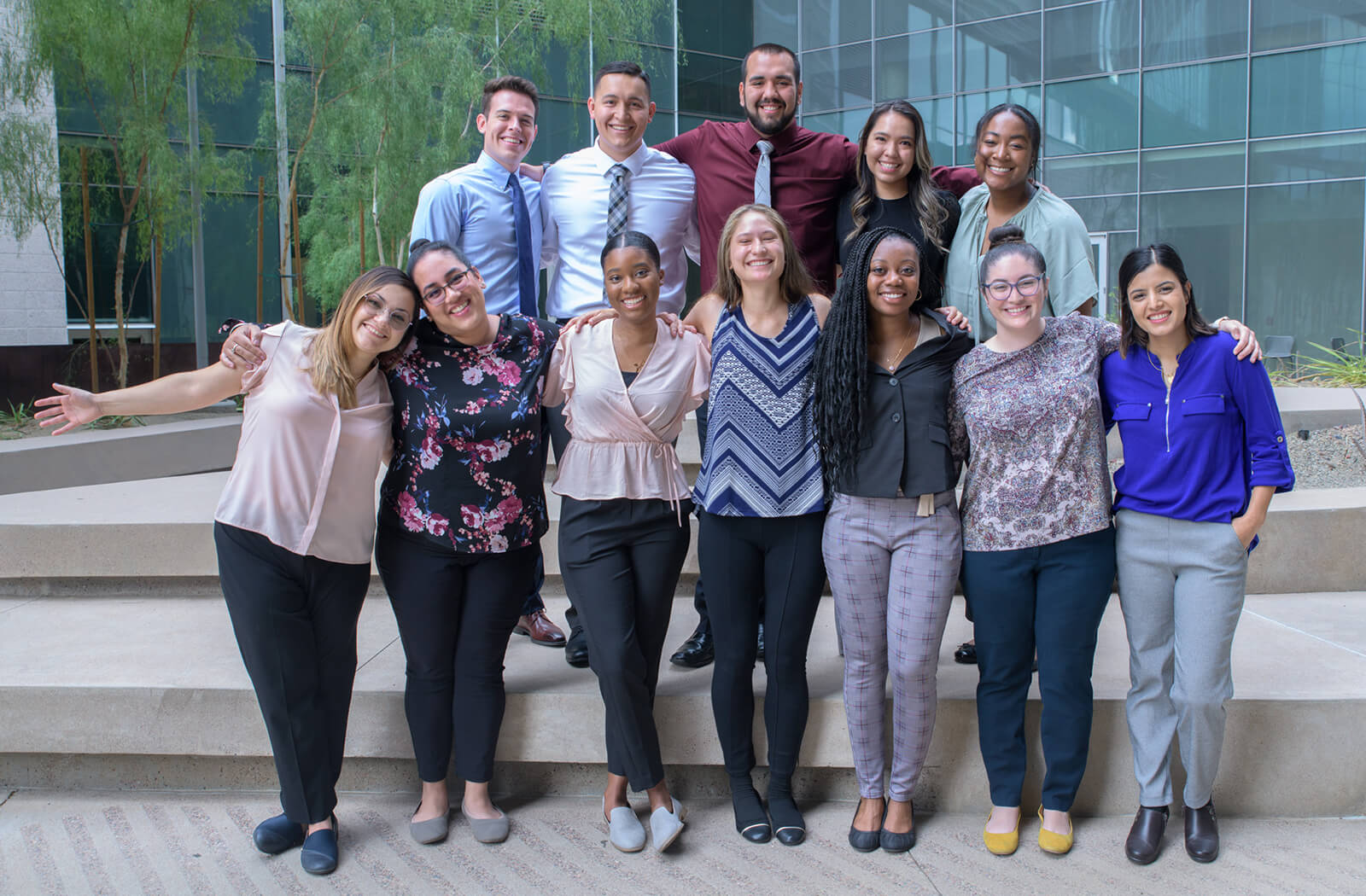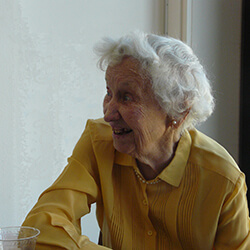
Haury Trust Donates $100K to Pathway Scholars Program

The trustees of the Agnese Nelms Haury Charitable Trust, seeks to continue the mission of the trust’s namesake.
Entrusted to select the trust’s funds, the trustees chose to donate $100,000 from the trust to a student involved in the University of Arizona College of Medicine – Phoenix’s Pathway Scholars Program.
“The Pathway Scholars program seemed as though it would have a positive impact in attracting and retaining the kind of students who would really appreciate the opportunity to attend medical school and give back to the community that he or she came from,” said Mary Grier, one of the trustees. “I think the program is something that people will appreciate and be grateful for.”
The Pathway Scholars Program prepares students who have experienced greater than average challenges to become competitive medical school applicants. Upon completion of the one-year program, students earn a Master of Medical Studies degree and transition into four years of medical school.

During her life, Agnese Nelms Haury supported a diverse range of causes that included social and environmental justice. In her philanthropy, Mrs. Haury was passionate about investing funds in innovative scholarship.
Grier attended college in California and then attended the University of Arizona in Tucson for law school. After graduation, she practiced with a Tucson firm, which is how she met Agnese Haury and began to work for her.
Haury acted as a mentor for Grier and eventually formed a friendship with the attorney. Upon Haury’s death, Grier was named as one of the trustees for Haury’s estate.
“As a trustee for Mrs. Haury’s trust, I’m directed to give away her money in the most impactful way possible,” Grier said. “It was a particularly easy decision to invest in professionals from underrepresented communities because health care equity has been ignored for so long.”
Grier first became involved with philanthropy after working for a law firm that represented wealthy people and big corporations. She didn’t find joy in what she was doing.
“We want to be safe and secure and have the basic needs of life met in our own lives,” Grier said. “However, once that condition is achieved, real satisfaction in life comes from being able to improve the lives of other people.”
While Grier had an established career as an attorney, her passion for equity— combined with her sister’s career in the medical field — inspired her to support the investment in education of medical professionals.
“Unfairness is corrosive, and we have a huge equity problem in our society,” Grier said. “Creating opportunities for people from underrepresented communities to achieve becoming a health care professional makes people from that community available as providers to members of that community.”
If someone is interested in philanthropy, but they don’t know where to start, Grier said that person should examine their own interests and figure out what they care about and what gets them excited.
“The best mix in philanthropy is where you form a connection to an organization and you know that your money is going to a worthy cause,” Grier said. “Your job as the donor is to find the thing that will make your heart sing and to support that.”
About the College
Founded in 2007, the University of Arizona College of Medicine – Phoenix inspires and trains exemplary physicians, scientists and leaders to advance its core missions in education, research, clinical care and service to communities across Arizona. The college’s strength lies in our collaborations and partnerships with clinical affiliates, community organizations and industry sponsors. With our primary affiliate, Banner Health, we are recognized as the premier academic medical center in Phoenix. As an anchor institution of the Phoenix Bioscience Core, the college is home to signature research programs in neurosciences, cardiopulmonary diseases, immunology, informatics and metabolism. These focus areas uniquely position us to drive biomedical research and bolster economic development in the region.
As an urban institution with strong roots in rural and tribal health, the college has graduated more than 1,000 physicians and matriculates 130 students each year. Greater than 60% of matriculating students are from Arizona and many continue training at our GME sponsored residency programs, ultimately pursuing local academic and community-based opportunities. While our traditional four-year program continues to thrive, we will launch our recently approved accelerated three-year medical student curriculum with exclusive focus on primary care. This program is designed to further enhance workforce retention needs across Arizona.
The college has embarked on our strategic plan for 2025 to 2030. Learn more.